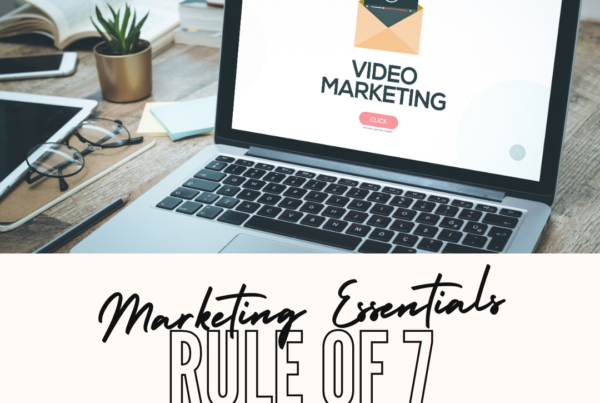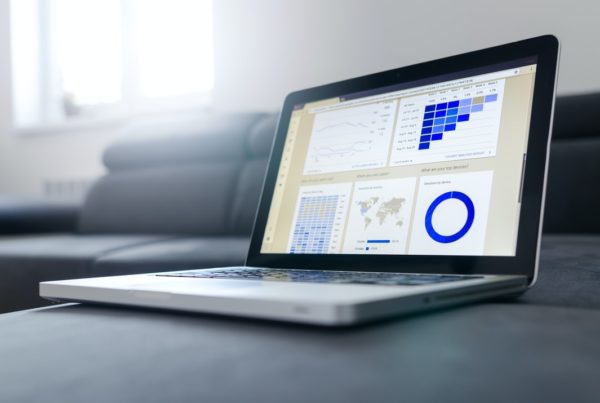
Traditional marketing is overpriced and antiquated in today’s digital world. But digital marketing is made for this modern world, and even the world of tomorrow.
To learn the many ways this makes a difference when choosing your marketing strategy, keep reading. The following guide explains several advantages digital marketing has over traditional marketing, including cost, audience targeting, and ROI. Read on to learn why you should choose digital rather than traditional marketing.
Digital Marketing Is More Automated
Traditional marketing requires human involvement at every stage of the process. Humans are necessary for ad creation, negotiating the purchase of ad space, printing/publishing the ads, and retracting the ads if needed. Afterward, more humans are needed to track the success of these ads and calculate ROI.
In contrast, one of the best benefits of digital marketing is how much of it can be automated. Humans should still be responsible for the creation of ads. But AI-powered software can handle almost every step that comes next.
Digital Marketing Is More Trackable
One example of automation is that the performance of digital ads can be tracked automatically with ad-tracking software. This provides accurate, easy-to-read metrics and costs 0 work hours.
Every stage of digital marketing, from creation to close, takes place within computer software. Thus, no important details or metrics will ever be overlooked. On the contrary, these details are precisely quantifiable and recordable.
Furthermore, the timing, placement, and other factors of digital ad publishing can be automated as well based on these same metrics. AI-enhanced ad software can help you test different variations of your ads to optimize their performance.
By experimenting with different images, copy, titles, and placements, you’ll quickly find which combination produces the best results. And, since this is automated, all you need to do is read the metrics and make sure your best ads are being displayed.
Digital Marketing Is Cheaper
All this automation means no staffing, benefits, or salary are required for any of it. This alone will easily save you over $100,000 per year compared with the work hours required for traditional marketing. And don’t forget about the price of materials for printed ads or ad space—more expenses that digital marketing doesn’t require.
Now, obviously, that doesn’t mean that digital marketing is free. But when you consider all the potential expenses of digital marketing, it adds up to far less than traditional marketing.
In fact, digital marketing has a much broader price range than traditional marketing so it can fit into any budget. Digital campaigns range from almost free to, well, as much as you’re willing to invest.
Pay-per-click (PPC) ads are a good illustration of this. These don’t cost you a single cent until someone clicks on them.
Digital Marketing Is More Targeted
Accurate ad tracking also illustrates another important advantage of digital marketing: targeting. We already mentioned one example: testing variations of your ads until you get the best results from your target audience.
But metrics can also help you define exactly who your ideal audience is so you can target them more closely. All you have to do is to look closely at the metrics of your most successful ads and see what they have in common. By analyzing these metrics, you or your AI-powered software can discover important data about the people who are clicking on your ads, including:
- What websites/apps they’re using when they click
- The times of day/days of the week they’re more likely to click
- Which of these users are more likely to complete a purchase
- What products they are most interested in
- Etc.
From this data, you can refine your digital marketing strategy/ads to target your ideal audience more specifically.
Cookies
You may even be able to gain information from cookies that your ad viewers have picked up from other websites they’ve visited. This can teach you even more about your target audience’s interests.
Better yet, you can program your ads to respond automatically to these cookies. This way, you can display ads that are specifically customized for various internet users based on their browsing history.
Digital Ads Are Published Instantly
Traditional advertising often involves a lot of waiting. You could be waiting a whole month for a certain magazine issue to come out with your ad inside. Or you might have to wait your turn to get your ad in the newspaper or on a billboard.
Even worse: have you ever printed an ad and then wished you could take it back? Major news developments like COVID-19 and the Black Lives Matter movement happen suddenly and unexpectedly. Then, in an instant, your billboard ad could come across as irrelevant or even offensive.
Unfortunately, with traditional marketing, removing these ads isn’t easy or quick, but it will definitely be very costly. You probably won’t be able to get the newspaper that printed your ad to retract it. And there may be a long waiting period before you can have the billboard ad changed or taken down.
Fortunately, publishing/modifying/retracting your digital ads is done instantly in just a few keystrokes. If you need to capitalize on a recent event or replace an offending ad, you can publish the new ads as quickly as you create them.
Digital Marketing Produces Better ROI
For all these reasons, you get a better ROI when choosing digital marketing over traditional marketing.
Since your digital ads are more targeted, you won’t waste much time/money marketing to uninterested parties. You can instantly capitalize on current trends instead of waiting for your new printed ads to come out. And, compared to traditional marketing, you don’t spend as much on your digital ad campaign anyway.
Besides, calculating the ROI of traditional marketing isn’t always accurate. There is a lot of guesswork involved and you almost never know for sure.
That’s not the case with digital marketing. Every metric is recorded you will know for certain how successful your investment is.
Digital Marketing Is Constantly Improving
Lastly, traditional marketing has gone practically unchanged for decades. New consumer trends can alter your traditional marketing strategy as far as copy, titles, and images are concerned. But the technology it relies on (printing, radio, television) rarely sees any significant change.
Alternatively, the type of technology digital marketing is based on improves constantly. Every year, we see huge advancements in digital marketing technology.
AI, machine learning, VR, and AR are popular examples of this. And these technologies continue to evolve. So, while traditional marketing stays the same as it ever was, digital marketing keeps getting better.
Traditional Marketing vs Digital Marketing
As you can see, traditional marketing vs digital marketing isn’t much of a contest these days. Digital marketing is better in every way. So, if you want some expert help for your digital marketing or social media marketing campaign, contact us through the link at the top of this page.
Now, read How Much Does Social Media Marketing Cost?




One Comment